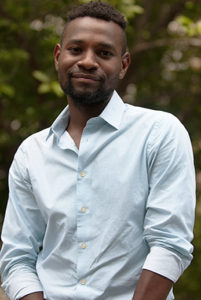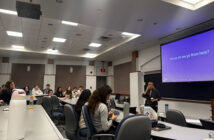This opinion piece is part of a series of perspectives from current or past staff of The Brown and White about the impact of the coronavirus overseas.
—
I remember my first time truly hearing about it being an issue. I was in Germantown, Maryland, during my study abroad orientation at the end of January with a group of 17 other students.

Miguel Cole was overseas studying in Brazil, South Africa and India. His experience, like that of many others overseas, was cut short due to the coronavirus outbreak.
“Masks are flying off the shelves,” our program director told us.
The message wasn’t meant to be alarming, just informative. But it was the first time that the background whispers of Coronavirus became tangible. This wasn’t a widespread panic, just people attempting to act on the side of caution — we did too.
As most people did, we stocked up on masks just to be safe. We were each given two masks and told that our country coordinators in India, South Africa and Brazil would be appropriately briefed and equipped to assess and manage any further information regarding the spread of the coronavirus.
To be honest, I wondered if the world would have stopped. I wondered if a super-flu was going to affect my education and chances to experience different parts of the world.
The terrible truth is that, for some, it has. I think of our students in Italy who, due to the spread of this outbreak, had no other option but to return home. This reality began to raise the question of what would happen if any of my three countries had reached a CDC-designated “Level 3.”
I seem to have been running from coronavirus while studying health, culture and community in my travels. When I left the U.S., people were still in that initial state of heightened caution. The suspended state that communities were in at that time were tangible and thick in the air. A place where uncertainty and vigilance meet. When I reached India, it didn’t seem to be a public concern. I spent most of my stay in Delhi, ranked the second-most populous city in the world by the World Population Review.
On the metro or in the markets, you would see the occasional masks, but nothing too serious. Toward the end of my stay in India, I visited a rural village in Bahraich, which borders Nepal, for five days. It was in those five days that Delhi had received its first case of the coronavirus.
There, I found myself in the same situation I was presented with for two weeks in Washington, D.C. — the fist spike in public caution. Minutes before my group and I boarded our overnight train from Bahraich back to Delhi, we were given extra masks and restrictions on what we were allowed to do until there was further information. Once again — not an alarm, just a notification.
However, this sense of concern presented itself differently than it did in D.C. The amounts of masks visible in public spaces rapidly increased — going from seeing one every now and then to seeing one in every six people wearing masks. Masks covered faces in the metros, the markets, the rickshaws, the restaurants, the ice cream shops, everywhere.
The first case in Delhi took place in North Delhi, while my program, my school, my excursions and my homestay resided in South Delhi. Yet, even with this distance, coronavirus managed to directly impact my program and presented us with a difficult situation.
Three students in my program were not allowed to go back to their homestay because their host sister had returned from Italy while we were away and had been placed in quarantine. That moment was one of true shock. The branches of worry began to bear fruit in late February.
The students were placed in a hotel for the remainder of our time in India and unable to give their host families a proper goodbye.
Events like that, mixed with the rapid increase of masks being drawn into the general public raised a concern on what it means to study abroad during a global outbreak.
That conversation was the biggest shock to the group’s system that allowed me to see what was going on in the world of study abroad, and what students, universities, organizations and traveling faculty have been facing with international education.





Comment policy
Comments posted to The Brown and White website are reviewed by a moderator before being approved. Incendiary speech or harassing language, including comments targeted at individuals, may be deemed unacceptable and not published. Spam and other soliciting will also be declined.
The Brown and White also reserves the right to not publish entirely anonymous comments.